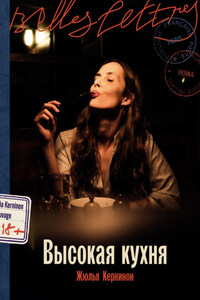The Borough Press
An imprint of HarperCollinsPublishers
1 London Bridge Street
London SE1 9GF
www.harpercollins.co.uk
Published by HarperCollinsPublishers 2017
First published by HarperCollinsPublishers 2017
Copyright © Jennifer Ryan 2017
Cover design by Claire Ward © HarperCollinsPublishers Ltd 2016
Cover illustration © Neil Gower 2016
Jennifer Ryan asserts the moral right to be identified as the author of this work
A catalogue record for this book is available from the British Library
This novel is entirely a work of fiction. The names, characters and incidents portrayed in it are the work of the author’s imagination. Any resemblance to actual persons, living or dead, events or localities is entirely coincidental.
All rights reserved under International and Pan-American Copyright Conventions. By payment of the required fees, you have been granted the non-exclusive, non-transferable right to access and read the text of this e-book on-screen. No part of this text may be reproduced, transmitted, down-loaded, decompiled, reverse engineered, or stored in or introduced into any information storage and retrieval system, in any form or by any means, whether electronic or mechanical, now known or hereinafter invented, without the express written permission of HarperCollins e-books
Source ISBN: 9780008163709
Ebook Edition © January 2016 ISBN: 9780008163723
Version: 2017-10-30
Tuesday, 26th March, 1940
First funeral of the war, and our little village choir simply couldn’t sing in tune. ‘Holy, holy, holy’ limped out as if we were a crump of warbling sparrows. But it wasn’t because of the war, or the young scoundrel Edmund Winthrop torpedoed in his submarine, or even the Vicar’s abysmal conducting. No, it was because this was the final performance of the Chilbury Choir. Our swan song.
‘I don’t see why we have to be closed down,’ Mrs B snapped afterwards as we congregated in the foggy graveyard. ‘It’s not as if we’re a threat to national security.’
‘All the men have gone,’ I whispered back, aware of our voices carrying uncomfortably through the funeral crowd. ‘The Vicar says we can’t have a choir without men.’
‘Just because the men have gone to war, why do we have to close the choir? And precisely when we need it most! I mean, what’ll he disband next? His beloved bell ringers? Church on Sundays? Christmas? I expect not!’ She folded her arms in annoyance. ‘First they whisk our men away to fight, then they force us women into work, then they ration food, and now they’re closing our choir. By the time the Nazis get here there’ll be nothing left except a bunch of drab women ready to surrender.’








